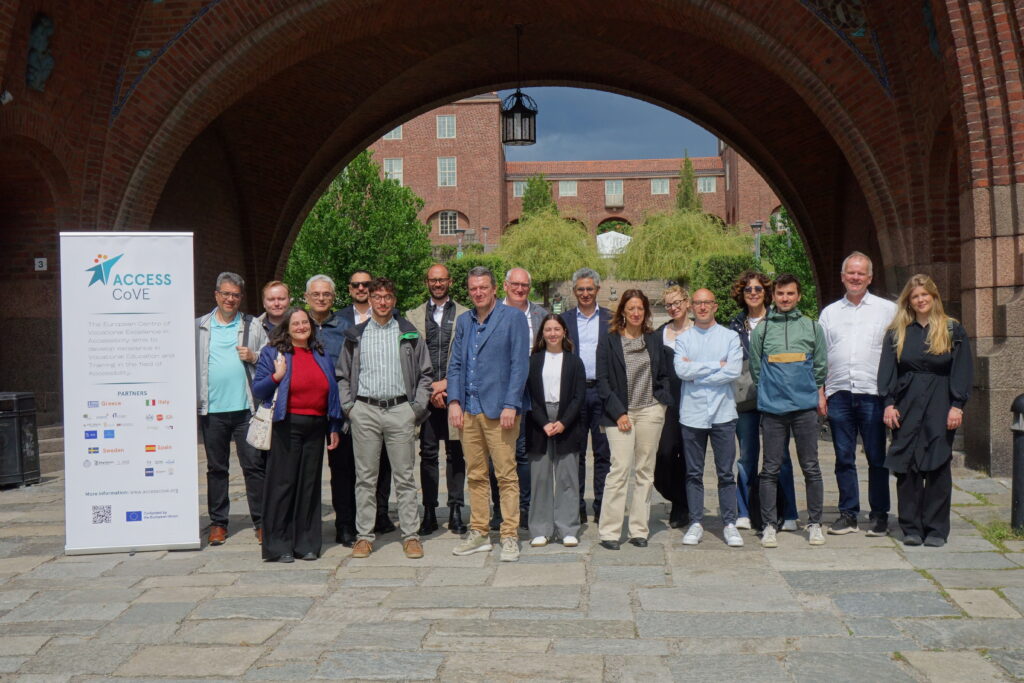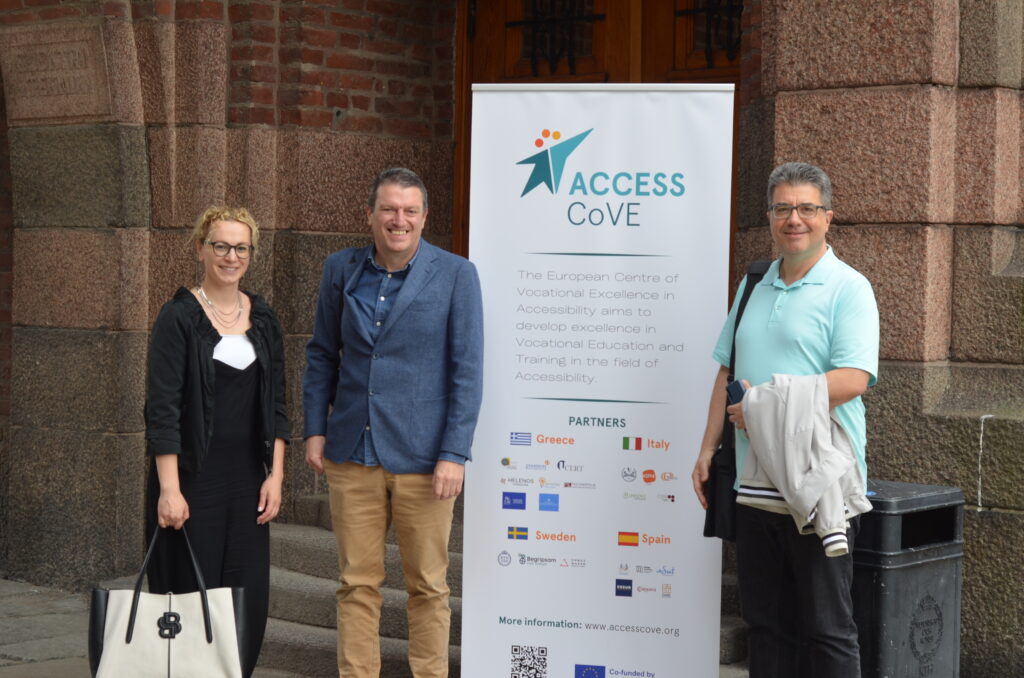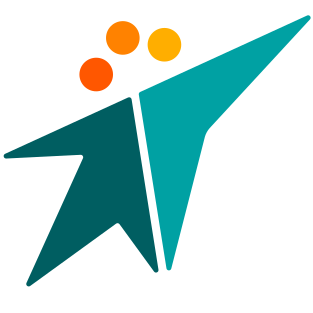Partners from across Europe gathered at KTH Royal Institute of Technology in Stockholm in June for a key AccessCoVE project meeting. The meeting focused on aligning the next steps in building AccessCoVE as a Centre of Vocational Excellence for accessibility. The meeting marked an important moment to strengthen collaboration, assess current progress, and coordinate efforts as the project moves from planning to delivery.
AccessCoVE brings together vocational education providers, universities, companies, and accessibility experts with a common goal: to bridge the knowledge gap in accessibility by providing vocational education. The importance of ensuring AccessCoVEs education is responsive and accessible to all learners, regardless of ability was also discussed.

Collaboration toward AccessCoVEs curricula
The main focus of the meeting adressed curriculum design. While development is still in progress, partners collectively reviewed drafts and worked to clarify structure, terminology, and shared expectations. The consortium is designing training programs across seven core areas of accessibility expertise for two new professional roles of consultancy and certification. These programs will reflect both technical and practical skills, tailored to different national contexts while maintaining a common European foundation. Key points included how to define modules and classes consistently, and how to ensure that future materials, like guides, lessons, and examples, can be shared, translated, and used across partner countries.
Commitment to accessible tools and platforms
Accessibility in AccessCoVE extends beyond learning content, it also applies to the digital spaces where education happens. The Stockholm meeting included discussions on how learning platforms and tools will be reviewed to meet accessibility standards. Plans for audits, guidance materials, and transparent documentation were discussed to help all partners ensure the environments they create are usable for everyone.
From planning to implementation
The meeting reinforced AccessCoVE’s collaborative approach and the importance of a shared foundation as the project progresses in design toward future implementation. Knowledge exchange across areas of expertise and a sensitivity to different national contexts remain central to this effort.

As the project moves forward, members of the AccessCoVE project management team reflected on the key takeaways from the discussions and outlined the next steps.
What are your main takeaways from the days of discussion in Stockholm?
AccessCoVE is advancing to the next stages of its implementation with steady progress and a clear emphasis on ensuring high-quality outputs. The active involvement of highly skilled partners in consortium mentoring activities has had a positive impact on the project’s development. Looking ahead, the establishment of smaller working groups among partners could enhance collaboration by allowing for more focused discussions on the specific requirements of each project task. – Konstantinos Papadopoulos, Project manager, AccessCoVE.
What are the next steps for AccessCoVE?
- The completion of the development of curricula
- The completion of the development of educational materials
- The implementation and evaluation of pilot programmes and certification processes for accessibility consultants and certifiers
- The organisation of the first Innovation Competition
- The development of professional profiles for accessibility consultants and certifiers
- The public announcement of the scientific conference and associated academic journal
With the ambition to consider accessibility into every phase of the project, we work toward a vocational education system that meets the needs of today’s learners and tomorrow’s workforce.
